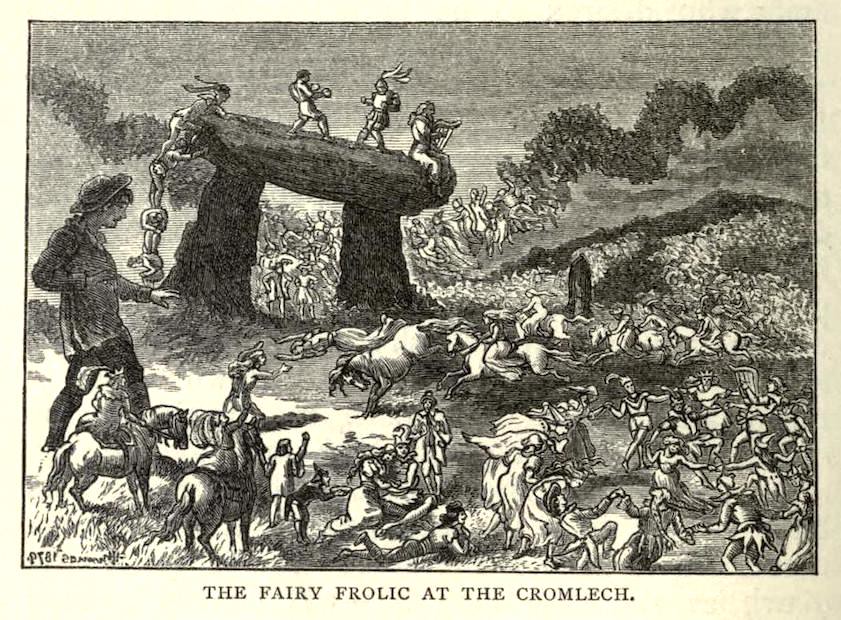Last week, I reported on P. Djèlí Clark’s Ring Shout and The Haunting of Tram 015, as well as (sigh) Catherynne M. Valente’s Speak Easy. But they are not my only recent fantasy checkouts.
Wonders of the Invisible World by Patricia McKillip
Another barrier between me and Speak Easy may be that I don’t particularly care for fairy tale rewrites. Call me a fake feminist, call me a hater of fun, or call me a person who just isn’t super-interested in fairy tales – it’s up to you. Either way I was a little wary when I picked up this Patricia McKillip collection and saw a lot of familiar fairy tale titles in the contents.
I needn’t have worried. This is my first encounter with McKillip’s work, and I’m going to make sure it is not the last. Each of her stories in Wonders of the Invisible World is an artful, subtly engineered piece, her prose unshowy but perfectly calibrated, and her endings always perfectly timed. The stories leave me wanting more, and since it’s a collection I can turn the page and get another hit.
McKillip captures a glorious wonder at the possibilities and mysteries of magic, and her attention to the experiences of women in these fantasy settings is particularly compelling. While princesses and witches are familiar fairy tale heroines, McKillip investigates the everyday predicaments and dissatisfactions of women with a clear-eyed kind of feminism that inspires reflection. Jack O’Lantern and Naming Day root themselves in the very mundane humiliations endured by women since time immemorial, and then deploy their fantastical elements to produce a brief but wondrous liberation for their female characters. They have a truly mature loveliness that sees the humanity and complexity of everyday life, not just the badassery of grand defiant heroes.
A few of her stories are a little too gentle for my taste, using their fantastic elements to shy away from the harshness of real life, but perhaps that’s the value of fantasy: we can struggle and suffer and in the end all come home safe. And other stories in the collection are chillingly clear-eyed about their subjects: the best of these, Xmas Cruise, is a heart-wrenching comment on climate change and environmental degradation, and shockingly prescient for a story from 1993. As with her feminist stories, McKillip uses her unerring gaze to lay bare the weaknesses which keep us from saving either ourselves or the other beings which inhabit the Earth.
All of her particular talents come together in the collection’s final story: The Doorkeeper of Khaat. This piece conjures up a fully realized science fiction world, inhabited by familiar yet alien cultures, and sets them spinning around a young poet, whose idealism and romanticism are obviously fated to be his doom. The story darts around all expected resolutions to settle into a meditation on the mysteries of love and loyalty across generations and cultures. How far would you go for someone you loved? And what kind of person do you become when you stand between worlds?
All of the stories in Wonders of the Invisible World are good, and besides those already mentioned I also enjoyed Knight of the Well, an eminently satisfying fantasy mystery. Each of the stories I’ve mentioned in this review could have been dragged out to a novel’s length, but McKillip deploys a deft hand in keeping them at exactly the right length to intrigue, amuse, and ultimately leave one wondering. I will be returning to her work posthaste.
The City in Glass by Nghi Vo
I don’t remember where I first heard about this book – probably on one of the millions of other SFF blogs I follow. I have not read any of Nghi Vo’s other books, and I’ve been afraid to buy them because they’re so short. I can’t afford $8 for an afternoon. Well, okay, now that I write it out, that is less than I’d pay for a movie ticket, but the movie also doesn’t come live on my already-overstuffed shelf after I watch it.
All this to say, I didn’t know what awaited me within the pages of The City in Glass, but luckily it proved to be pretty sick. The setting, themed around a vague Classical Era Mediterranean vibe, drew me in, as I have been a Hellenic wonk since childhood. I’m also continually interested in the lives and minds of long-lived spiritual beings like angels and demons, and this fed my fascination with the psychology of things which can’t die and (pretend that they) can’t change.
The book is a short, speedy account of the aftermath of a city’s smiting and the grieving process of an immortal demon who has lived in the city since its early days. The demon, Vitrine, has spent her endless days cultivating the city like a garden, nurturing it into a wild and wealthy trading hub full of brilliant and debauched citizens. So of course a group of angels show up to spoil the fun. They destroy the city utterly, obliterating all life in a chillingly nuke-like spectacle, except for Vitrine, who cannot die. In her anger, she pierces one of the angels with a powerful curse: love for her. The angel, experiencing debased emotions like guilt and shame for the first time, is barred from his celestial home, and comes to reside with Vitrine in the ruins of the city, despite her hatred.
Vitrine and the angel proceed to have a world-historically toxic relationship (slay!) while slowly the city reestablishes itself around them. There’s fascinating ambiguity around the power and influence of the immortals, the question of whether the city would have risen again without their interference. Throughout its restoration, Vitrine and the angel push and pull at each other, driving at each other with searing philosophical questions and plucking favorites from among the mortals inhabiting their domain. In the end, their relationship hits its climax in tandem with the climax of the city’s resurrection, and all come together (lol) in a bloody and delirious whirlwind.
Fundamentally, this is a book that is mostly about very literally unrelatable characters discussing ethics and philosophy while toying with very briefly alive human beings. I can see how this is all a tremendous turn-off for some people (the weak…), but for me it’s a rare delectation. It’s a short piece which does not overstay its heady concept, it moves quickly and skillfully across thousands of years, and it offers, as its culmination, perhaps the most gloriously improbable sex act I can imagine. What higher praise can one offer?
In conclusion, my return to library usership has been a smashing success. I still managed to mostly select books that I really enjoyed, but at least they were different from my usual fare. I guess my taste is just too good… I must continue to dare, and trust that in my eventual fall we will discover some truly exciting reviews.

